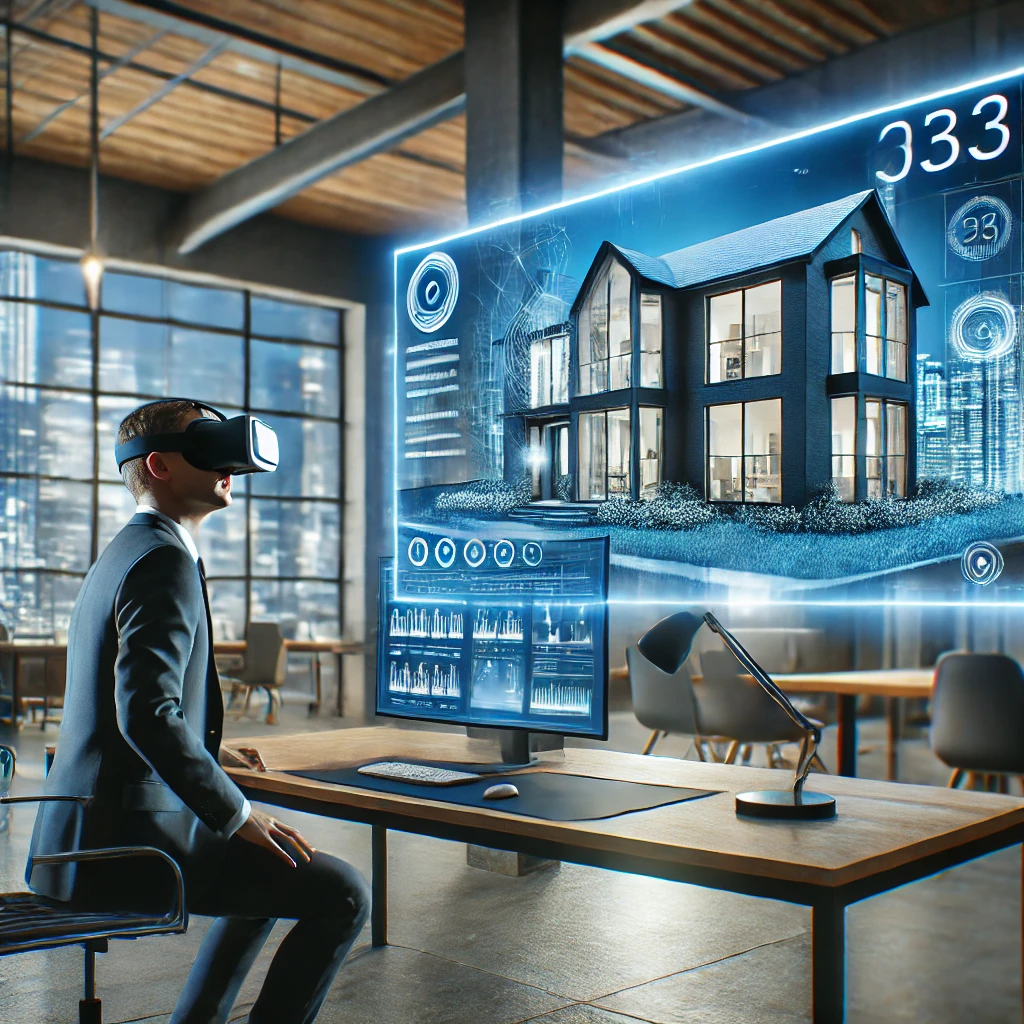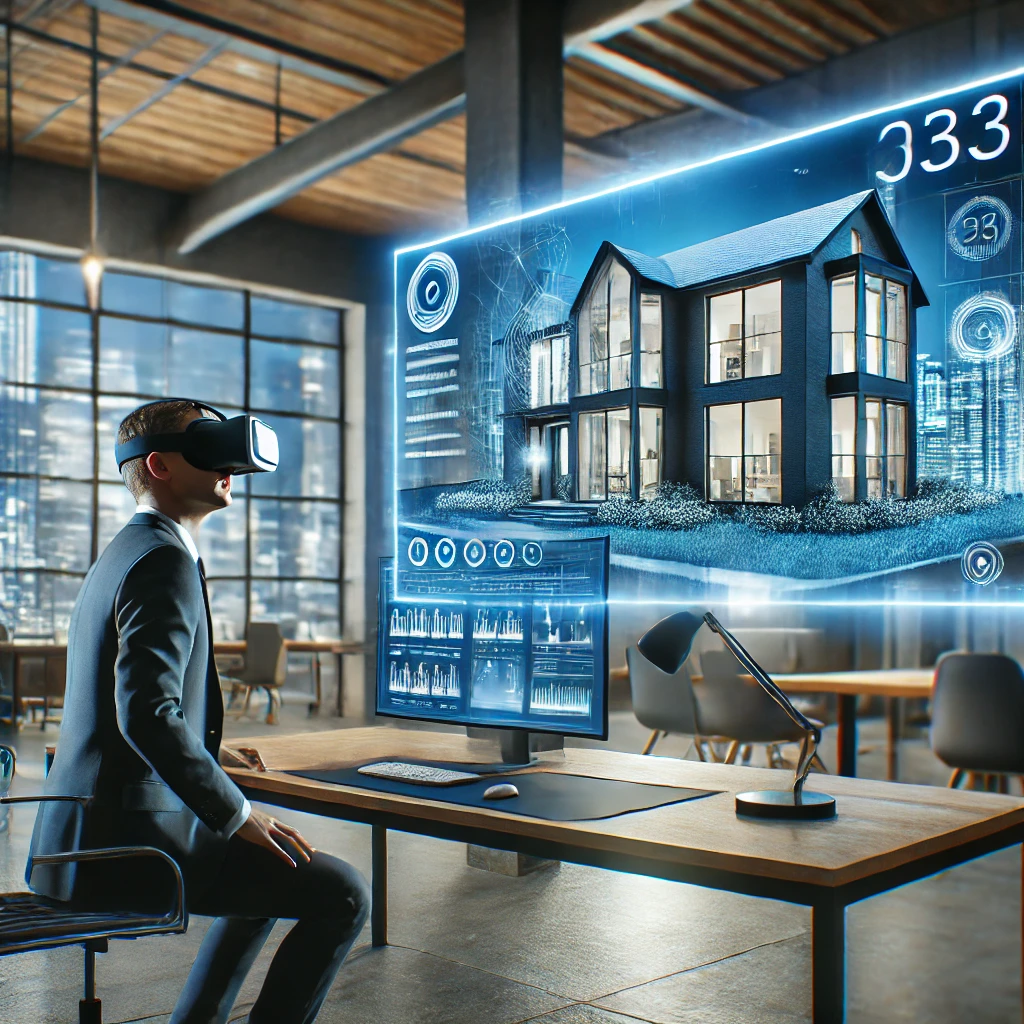The Role of Virtual Tours in Modern Real Estate
In today’s fast-paced digital era, the real estate industry is embracing technology to revolutionize how properties are bought, sold, and rented. One of the most significant innovations in recent years is the advent of virtual tours. These immersive, digital experiences allow prospective buyers and tenants to explore properties without ever leaving their homes. Virtual tours have not only made property viewing more convenient but have also opened up new avenues for real estate professionals to market their listings effectively.

What Are Virtual Tours?
Virtual tours are interactive, digital walkthroughs of a property that provide a 360-degree view of the space. By using specialized cameras and software, real estate agents can create a realistic and immersive experience for viewers. These tours can be accessed on a computer, smartphone, or even through virtual reality (VR) headsets, offering a comprehensive sense of the property’s layout and features.
Benefits of Virtual Tours in Real Estate
1. Convenience for Buyers and Sellers
Virtual tours save time for both buyers and sellers. Buyers can view multiple properties in a single day without the need to travel, while sellers can attract serious inquiries from viewers who have already explored the property online.
2. Wider Reach
For NRIs (Non-Resident Indians) or international buyers, visiting properties physically is often impractical. Virtual tours eliminate geographical barriers, allowing interested parties from around the world to view properties effortlessly.
3. Time-Saving and Efficient
Instead of scheduling multiple in-person visits, potential buyers can shortlist properties by first exploring virtual tours. This ensures that physical visits are reserved only for the most promising options, saving everyone’s time.
4. Enhanced Marketing for Real Estate Agents
Real estate agents can use virtual tours as a powerful marketing tool. Listings with virtual tours stand out more, attract higher engagement, and are perceived as modern and innovative.
5. Detailed Property Insights
Virtual tours often highlight intricate property details that might be overlooked during a quick physical visit. Buyers can take their time exploring every nook and cranny at their own pace.
Types of Virtual Tours
1. 360-Degree Tours
These are the most common type of virtual tours. They provide a panoramic view of the property, allowing users to navigate from room to room using their device.
2. Video Walkthroughs
A guided video walkthrough offers a seamless flow through the property. These tours are usually narrated by the agent, highlighting key features and benefits.
3. Virtual Reality (VR) Tours
With VR headsets, buyers can experience a fully immersive tour that makes them feel like they are physically present at the property. This cutting-edge option is particularly appealing to tech-savvy audiences.
How Virtual Tours Enhance the Buying Experience
1. Realistic Visualization
Photos can sometimes be deceptive, failing to capture the true essence of a property. Virtual tours provide a realistic and accurate representation, giving buyers confidence in their decisions.
2. Flexibility and Accessibility
Virtual tours are available 24/7, allowing potential buyers to view properties at their convenience. Whether it’s late at night or during a lunch break, the property is always open for viewing.
3. Emotional Connection
Seeing a property through a virtual tour can create an emotional connection. Buyers can imagine themselves living in the space, which helps in making informed and confident decisions.
Impact on the Real Estate Market
Virtual tours have transformed the real estate landscape by:
- Reducing the need for in-person visits, especially during global crises like the COVID-19 pandemic.
- Speeding up the decision-making process, as buyers have a clear understanding of the property from the start.
- Leveling the playing field for smaller real estate firms that can now compete with larger agencies by offering high-tech solutions.
Challenges and Limitations
While virtual tours are a game-changer, they are not without their challenges:
- Technical Expertise Creating high-quality virtual tours requires specialized equipment and skills, which might be a barrier for some agents.
- Internet Dependency A stable and fast internet connection is essential for a seamless virtual tour experience. Poor connectivity can deter potential buyers.
- Lack of Physical Interaction Virtual tours cannot replace the sensory experience of visiting a property in person. Buyers miss out on elements like touch, smell, and the overall ambiance.
The Future of Virtual Tours
The future of virtual tours looks promising, with advancements in technology making them more accessible and affordable. Features like augmented reality (AR), drone footage, and AI-driven personalization are set to enhance the virtual tour experience even further. As VR headsets become more mainstream, immersive property tours will likely become the norm.
Tips for Real Estate Agents
- Invest in Quality Equipment High-quality visuals are crucial for creating an impressive virtual tour. Invest in professional-grade cameras and software.
- Highlight Unique Features Focus on showcasing the property’s unique aspects, such as stunning views, modern amenities, or spacious layouts.
- Promote Tours Effectively Share virtual tours on multiple platforms, including real estate websites, social media, and email campaigns, to maximize visibility.
- Offer a Hybrid Approach Combine virtual tours with in-person visits to cater to the diverse needs of clients.
Conclusion
Virtual tours have redefined how properties are marketed and viewed in the modern real estate industry. They provide unmatched convenience, expand reach, and offer a realistic and engaging way to explore properties. As technology continues to evolve, virtual tours will become an indispensable tool for real estate professionals, ensuring a seamless and efficient buying and selling experience for all stakeholders. Embracing this innovation is not just an option but a necessity for staying ahead in the competitive real estate market.
Fixed deposits vs real estate: Which is worth, buying land or FD in bank?
Best Place to Invest in Noida (2025): Top Sectors Listed For High Returns







